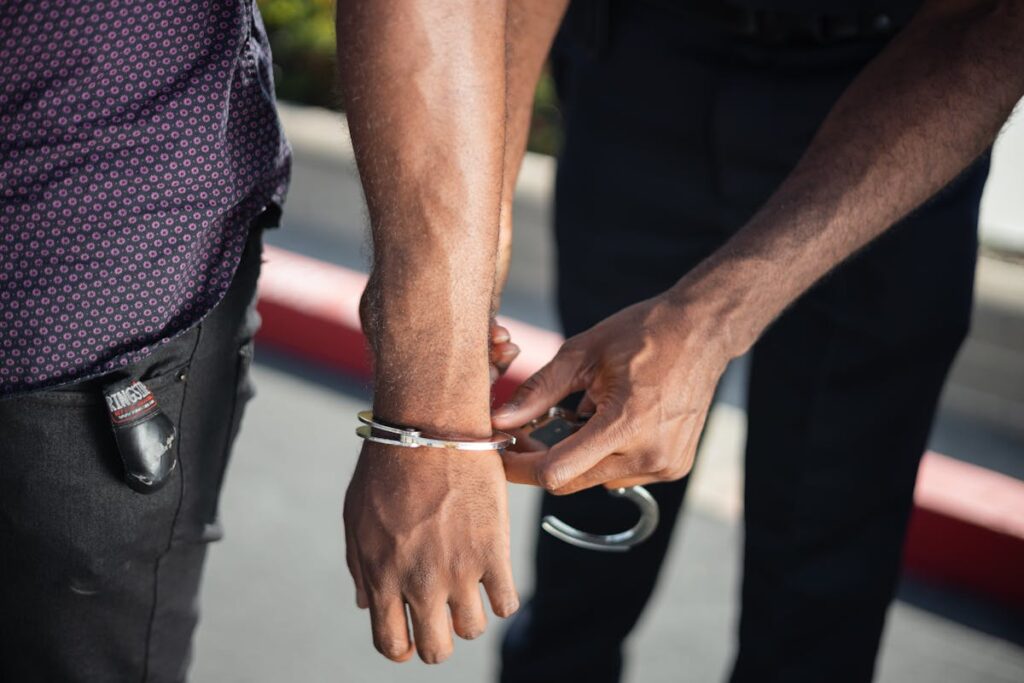How a Defense Attorney Can Protect Your Rights in Serious Criminal Cases

Engaging a competent defense attorney can be a game-changer in serious criminal cases. These legal professionals are the safeguard to your rights, ensuring fair treatment, challenging evidence, and expertly maneuvering through the complexities of the justice system. Their adept understanding of legal precedents and ability to identify rights violations, negotiate plea deals, and present mitigating circumstances can have significant implications on the outcome of your case. But how exactly does a defense attorney achieve this? Let’s explore this essential role and its profound influence on the justice process.
Understanding Criminal Charges
While the landscape of criminal law may appear complex, understanding the specifics of criminal charges is a fundamental step in the legal process. The spectrum of criminal offenses is vast, ranging from minor infractions to severe felonies. Each charge carries a unique set of legal definitions and potential consequences that can greatly impact an individual’s life. Understanding these charges is essential, as it allows the accused to grasp the gravity of their situation, aiding them in making informed decisions about their legal strategy. In addition, a deep understanding of criminal charges can shed light on possible defenses, thus bolstering one’s chances of a favorable outcome. As a result, an accurate comprehension of criminal offenses and their legal definitions is instrumental in traversing the labyrinth of criminal law.
The Role of a Defense Attorney
In the complex world of criminal law, the role of a defense attorney for serious criminal cases proves to be pivotal. Their primary duty is client advocacy, where they ardently represent the interests of their client. The defense attorney employs a deep understanding of the law to challenge the prosecution’s case, raise doubts, and present alternative theories. They guarantee that every possible legal avenue is explored and every potential defense strategy is considered. Wielding the sword of legal ethics, they fight diligently to prevent any miscarriage of justice. The attorney’s role extends beyond the courtroom; they provide counsel, negotiate plea bargains, and help clients understand the potential consequences of their decisions. Essentially, a defense attorney serves as the client’s champion, steering through the labyrinth of criminal law.
Your Rights in Criminal Cases
The cornerstone of the American criminal justice system is the assumption of innocence until proven guilty, and your fundamental rights in criminal cases reflect this principle. One of these criminal rights is the right to a fair and speedy trial by an impartial jury. Legal protections also include the right to remain silent, not incriminating oneself, and the right to confront the accusers. Equally essential is the right to counsel; if you cannot afford an attorney, one will be appointed for you. Understanding these rights is integral to traversing the criminal justice system. A defense attorney not only guarantees these rights are upheld but also leverages them to build a robust defense strategy, a topic we will explore next.
Legal Strategies in Defense
Harnessing the fundamental rights of the accused, a defense attorney employs various legal strategies to guarantee a favorable outcome for their client. They meticulously analyze the case, formulating effective defense strategies based on facts, legal precedents, and the law’s nuances. Such strategies may involve challenging the prosecution’s evidence, highlighting procedural irregularities, or leveraging constitutional protections.
Moreover, an adept attorney can negotiate plea bargains, reducing charges or penalties. They can also present compelling alternative theories during the trial, swaying the jury’s perspective. These tactics require deep legal knowledge, persuasive argumentation, and keen analytical skills. Consequently, a competent defense attorney’s role is pivotal in safeguarding the accused’s rights and ensuring the legal process’s integrity.
Navigating the Court System
An integral part of a defense attorney’s role in criminal cases is skilfully maneuvering the complex court system. Mastery of legal procedures is imperative, ensuring a thorough and robust defense strategy. We now turn our attention to analyzing these procedures and the indispensable role of the defense attorney within the judicial process.
Understanding Legal Procedures
While many view the court system as a labyrinthine structure fraught with complexities, a proficient understanding of legal procedures can greatly alleviate this perception. Grasping legal terminology is a critical first step, as it provides the language necessary to comprehend and navigate the intricate court system. This will allow you to understand the procedural timelines that dictate the rhythm of legal proceedings. By mastering these timelines, you can anticipate and prepare for each stage of the legal process. Additionally, this understanding can empower you to actively participate in your defense, rather than feeling lost or overwhelmed. Hence, a thorough comprehension of legal procedures is not only beneficial but essential for anyone involved in a serious criminal case.
Role of Defense Attorney
Having established the importance of understanding legal procedures, we now turn our attention to the essential role of a defense attorney in the court system. Proficient in defense strategies, these professionals guide clients through the labyrinth of legal protocols and precarious circumstances. A defense attorney’s role extends beyond arguing in court; it includes analyzing evidence, formulating robust strategies, and ensuring that the legal rights of the accused are protected at all times. Upholding attorney ethics, they provide unbiased representation, regardless of personal beliefs or societal pressures. The attorney-client relationship is built on trust, and defense attorneys bear the responsibility of maintaining that trust while relentlessly fighting for their clients’ rights. Therefore, a defense attorney is both a legal advisor and a vital advocate in the court system.
Cross-Examination Tactics
Even though the prosecution carries the burden of proof in a criminal case, a defense attorney must employ effective cross-examination tactics to challenge the credibility of the prosecution’s evidence. Utilizing potent cross-examination strategies can cast doubt on the reliability of the prosecution’s witnesses, consequently enhancing the defense’s case.
Defense attorneys meticulously analyze witness statements for inconsistencies, exaggerations, and potential bias. Skilled attorneys exploit these weaknesses, undermining the witness’s credibility through focused, relentless questioning. Additionally, they leverage body language and tone-interpretation to detect untruthfulness.
Simultaneously, the defense must maintain respectful, ethical conduct to avoid alienating the jury. A successful cross-examination strikes a delicate balance between aggressive questioning and respectful behavior, a skill honed by experienced defense attorneys. Hence, employing effective tactics during cross-examination is paramount to safeguarding a defendant’s rights.
Negotiating Plea Bargains
In the labyrinth of criminal defense, negotiating plea bargains emerges as a critical strategy. This tactic, often employed by defense attorneys, allows the accused to plead guilty to a lesser charge, thereby reducing their potential sentence. Plea negotiation is a complex process requiring an intimate understanding of the law and a keen ability to strategize. The defense attorney’s role is to guarantee that the negotiation process is fair, transparent, and ultimately, beneficial to their client. They must persuasively argue for a beneficial legal outcome, using the available evidence and their client’s circumstances. This requires a thorough investigation of the case, an adept understanding of the legal landscape, and a strategic approach to negotiation. Plea bargains, when negotiated effectively, can be a valuable tool in securing favorable legal outcomes.

Mitigating Circumstances and Sentencing
While plea bargaining constitutes a notable part of a defense attorney’s toolkit, another essential strategy revolves around mitigating circumstances and sentencing. In the harsh domain of criminal law, mitigating factors can play a pivotal role in lessening the severity of sentencing. These factors, typically personal or situational, humanize the defendant, potentially swaying the court towards more lenient sentencing guidelines. Consequently, a skilled defense attorney meticulously uncovers and presents these circumstances, persuasively arguing their relevance to the case at hand. This approach not only showcases the attorney’s analytical acumen and deep knowledge of the legal system, but also upholds the client’s rights, ensuring the court considers all relevant factors before passing judgment. This strategic maneuver can greatly impact the outcome of serious criminal cases.
Selecting Your Defense Attorney
Choosing the right defense attorney is a critical decision that could greatly impact the outcome of your case. The attorney’s credentials must be thoroughly evaluated to guarantee their expertise aligns with the nature of your case. In addition, effective communication between the attorney and client is paramount, as it fosters a relationship built on trust, understanding, and collaborative problem-solving.
Evaluating Attorney’s Credentials
How do you assess the caliber of a defense attorney in a criminal case? Start by examining their qualifications. An attorney with a solid educational background, specialized training, and extensive experience in handling serious criminal cases is a good indication of competence. But don’t stop there. Look for board certifications and memberships in professional organizations, as these are indicators of an attorney’s commitment to their field. Also, consider client testimonials. These firsthand accounts can offer an invaluable insight into an attorney’s style, approach, and effectiveness in the courtroom. Remember, selecting a defense attorney is not merely about their credentials on paper; it’s about their proven track record, dedication, and the confidence they inspire in their clients.
Attorney-Client Communication Importance
As vital as an attorney’s qualifications are, equally essential is the quality of communication between the attorney and their client. A strong attorney-client relationship, rooted in open, honest, and confidential conversations, is the bedrock of effective legal representation in serious criminal cases. This two-way communication fosters trust building, facilitating a more powerful defense strategy. A client who feels understood and heard is more likely to share important details, enabling the attorney to craft a thorough defense. Also, regular updates and explanations from the attorney empower the client, reducing anxiety and fostering collaboration. Therefore, when selecting a defense attorney, one must prioritize excellent communication skills alongside robust qualifications.
Frequently Asked Questions
What Is the Cost of Hiring a Defense Attorney for Serious Criminal Cases?
The cost of hiring a defense attorney for serious criminal cases can vary considerably. However, many attorneys offer affordable options and payment plans, ensuring that everyone has access to quality legal representation, irrespective of their financial circumstances.
How Often Should I Communicate With My Defense Attorney During the Trial?
Frequent communication with your defense attorney is imperative. The frequency, however, should be defined by case needs and attorney availability, ensuring a thorough understanding and a strategically sound representation throughout the trial process.
What Happens if I Cant Afford a Lawyer for My Serious Criminal Case?
If affording a lawyer for a serious criminal case poses a challenge, public defender options are available. These professionals offer legal representation, funded through financial assistance, guarding your rights in the judicial process effectively and efficiently.
Can a Defense Attorney Get My Case Dismissed Before It Goes to Trial?
Yes, a defense attorney can leverage legal strategies to seek case dismissal before trial. They can challenge the validity of the evidence, argue procedural errors, or negotiate plea deals to potentially get your case dismissed.
What Should I Do if Im Not Happy With the Performance of My Defense Attorney?
If unsatisfied with your defense attorney’s performance, communicate your concerns and client expectations directly. If improvements are not made, consider seeking a different attorney to guarantee your rights are effectively protected in your criminal case.



